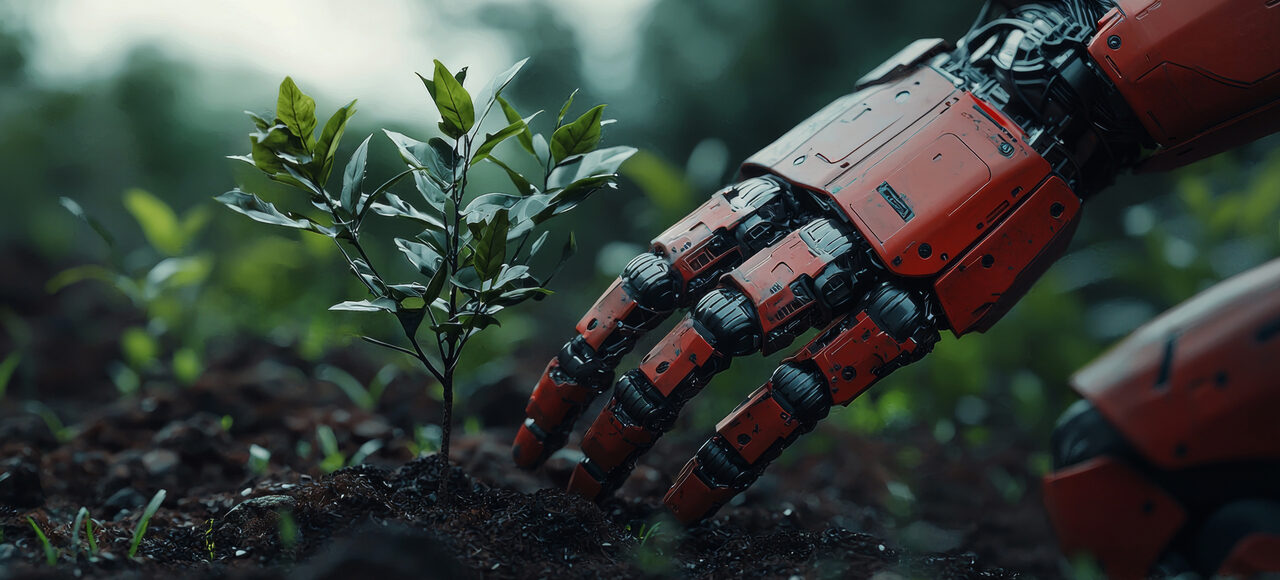As we enter 2025, the world of technology and artificial intelligence (AI) stands on the brink of transformative change.
Over the past year, AI has grown from a powerful tool into an integral part of industries, impacting everything from creative content generation to sustainable development.
With innovations in quantum computing, ethical AI practices gaining traction, and a steady rise in adoption across various sectors, 2025 promises to be a landmark year.
Legal and regulatory hurdles, as seen with groundbreaking tools like sora.com, reflect the complexities of implementing AI on a global scale.
At the same time, quantum breakthroughs like Google’s Willow chip are opening new doors to problem-solving that seemed impossible just a few years ago.
Let’s explore the key AI and tech trends of 2025, their impacts, and how to stay ahead in this transformative year of innovation.
Generative AI

Generative AI is taking creativity to a whole new level.
Producing photorealistic videos or stunning graphics with just a few prompts will strive in the next year. A great indicator of that is Sora, a generative AI diffusion model.
There’s a catch. Sora is unavailable in Europe due to regulatory challenges. This highlights a growing issue: How do we balance innovation with rules that protect privacy and intellectual property?
It’s also important to draw a line between AI and generative AI. Although often the term AI is used, generative AI is the actual meaning behind it.
We’ll see more discussions around these challenges. At the same time, the potential for generative AI to revolutionize industries like video production, marketing, and design is undeniable.
Just as generative AI transformed creative writing and other text-based industries two years ago, we’re now seeing the same shift in visual media.
⭐ AI-generated videos are becoming more accessible, reshaping how creators produce content.
Such videos are already making waves on social media, especially in short-form formats like Reels and TikToks.
The length limitations of many AI video generators align perfectly with the bite-sized content trend, making them ideal for capturing attention and driving engagement.
AI for sustainability

AI is not just about automation and creativity. It’s becoming a powerful ally in sustainability.
Energy consumption, improving waste management, and other worldwide problems are currently (partly) tackled with Artificial Intelligence.
AI-driven models are now predicting climate patterns with greater accuracy. This helps industries like agriculture and energy adapt and make informed decisions.
Urban planning, green cities, and improving quality of life are other areas where I see AI thriving in the coming months.
But sustainability isn’t just about the environment.
It’s also about ethical practices.
As AI becomes more integrated into our lives, transparency and accountability are critical:
- How is AI being used?
- Is it fair?
- Does it respect privacy?
These and many more questions are shaping the future of ethical AI.
2025 will likely see stronger regulations and guidelines aimed at ensuring AI serves humanity responsibly.
Companies that adopt ethical AI practices now will not only gain trust but also position themselves as leaders in a rapidly changing world.
At the intersection of technology and sustainability, the potential for growth is immense. Businesses and organizations that align with these values will have the opportunity to make a real impact.
Quantum computing breakthroughs

Quantum computing is no longer a concept of the distant future.
It’s happening now.
In a groundbreaking achievement, Google’s Willow chip solved a complex problem in under five minutes.
⭐ A traditional supercomputer would take billions of years to achieve the same result.
Fields like healthcare, finance, and logistics stand to benefit immensely from its problem-solving power. Imagine quicker drug discoveries, optimized supply chains, and advanced financial modeling.
Quantum computing also pairs perfectly with AI.
By handling calculations at unprecedented speeds, it can supercharge AI models, making them faster and smarter. This means better predictions, more complex simulations, and solutions to problems we couldn’t solve before.
While still in its early stages, quantum computing is advancing rapidly and I expect new breakthroughs in the upcoming year.
AI adoption across industries
Despite the hype, AI adoption is still relatively low in many industries.
According to a recent survey, only 6.1% of businesses reported using AI in production, a modest increase from 3.7% the previous year.
Anyhow, the growth is expected and natural.
In Australia, for instance, companies like Telstra and major banks have significantly advanced their use of AI to improve customer service and operational efficiency.
The demand for workers with AI skills is also expected to grow significantly in 2025, with many employers seeking machine-learning specialists and roles involving AI implementation.
All this points toward the continuous growth of AI in 2025 and beyond.
However, it also debunks a common myth: Everybody is using AI. That’s simply not true.
This often comes from professionals in digital marketing and other similar industries. For them, AI is everywhere for the past two years and it’s difficult to imagine that it’s simply not widespread yet (like Google.)
⭐ For businesses and NGOs, 2025 represents an opportunity to harness AI’s potential. Whether it’s improving efficiency, creating engaging content, or making data-driven decisions, the time to adapt is now.
Legal and regulatory challenges

As AI adoption accelerates, so do the legal and regulatory questions surrounding its use.
Once again, tools like Sora highlight the complexities of navigating global regulations.
While Sora’s groundbreaking video generation capabilities are transforming content creation, its unavailability in Europe due to privacy and compliance concerns reflects the hurdles ahead.
The debate over AI-generated content and intellectual property rights continues to heat up. Recent lawsuits have brought attention to how generative AI models use copyrighted material without permission, pushing for clearer guidelines on fair use and content ownership.
In 2025, we can expect stronger regulatory frameworks to emerge, aiming to balance innovation with accountability.
Governments worldwide are working to establish standards for transparency, data privacy, and ethical AI use.
These changes will directly impact how businesses develop and deploy AI tools.
The road ahead
The promise of AI and technology is clearer than ever. From generative AI redefining creativity to quantum computing solving problems we once thought unsolvable, the year ahead holds immense potential.
AI is no longer just a tool for big tech. It’s accessible to businesses, NGOs, and creators around the world.
The possibilities are real, but so are the challenges. Ethical practices, regulatory compliance, and thoughtful adoption will shape how we leverage these advancements.
At Adapto, we’re here to support you on this journey. With a focus on making AI accessible and practical, we aim to help organizations embrace these changes with confidence and ease.
Ready to take the next step? Book a call with us to explore how we can help you adapt and thrive in 2025 and beyond.
The future isn’t just coming.
It’s already here.
Let’s make the most of it.

